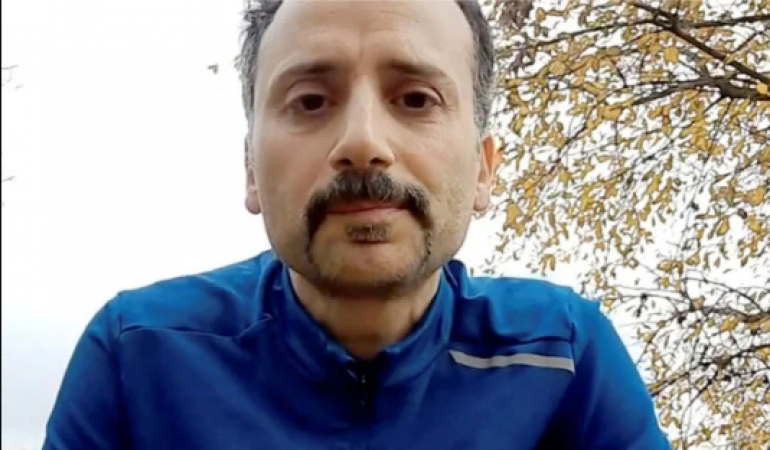
Paris: Members of the Iranian diaspora sympathised with a 38-year-old man who committed suicide in the French city of Lyon after becoming distressed over the protests in Iran.
Iranians living abroad are experiencing a range of emotions three months into the anti-regime demonstrations. Mohammed Moradi's desperate act this week is intended to encourage others to ask for assistance and to bring attention to the situation in Iran, according to activists and counsellors.
Before his passing, Moradi made videos in Farsi and French in which he criticised Iran's leadership and urged Western governments to stand with him in opposition. He was heard saying in the recordings, "I will be dead when you see this video."
Also Read: 3 missiles are fired by North Korea amid tensions over drone flights
The Iranian Kurdish man, who was pursuing a PhD in history, and his wife arrived in France in 2019.
The news of his passing on Monday spread widely. His death scene was decorated with flowers and candles by Iranian residents of the Lyon area, activists, and friends. Police were looking into an apparent suicide.
Since the unprecedented protests started, which were sparked by the death of Mahsa Amini, 22, in Iranian police custody in September, many Iranians living abroad have been in distress. Amini had been detained by the police for allegedly disobeying Iran's strict dress regulations for women.
Hengameh Yahyazadeh, the primary organiser of Toulouse, France's solidarity demonstrations against Iran's clerics, claimed that Mohammed Moradi "is the image of all of us, what we live today, as the Iranian diaspora throughout the world."
Also Read: WHO requests China to regularly share specific data on the COVID situation
According to Moradi's Instagram profile, he has a passion for politics, poetry, and literature.
He used Instagram, like many Iranians living abroad, to share messages decrying the clerical rule of the regime, documenting his participation in protests in Lyon, and expressing his outrage at the treatment of protesters in Iran.
Yahyazadeh stated, "There are some mornings when I wake up scared.
"I have a dozen friends in Iranian prisons, and I'm afraid of how I'll react if I learn that one of them was executed," the speaker said.
According to Human Rights Activists, a group in Iran that has closely followed the unrest, at least 507 protesters have died and more than 18,500 have been detained since the protests began.
Numbers of those killed or detained by Iranian authorities have not been disclosed. Twelve other protest participants are also in danger of the death penalty.
The news from back home has led to many Iranians in the diaspora to experience "decompensation," a psychological condition that comes from being unable to process stressful events, according to Hanae El-Bakkali, a psychotherapist and the director of a French organisation that works with migrants.
El-Bakkali told the AP: "When significant events take place at home, it reactivates past trauma and presses parts that are buried, that one thought they left on the side but actually didn't."
Through flashbacks, people experience their past experiences again. They may harm themselves and experience nightmares, looping thoughts, insomnia, memory problems, anxiety, and depressive symptoms.
The news from back home has led to many Iranians in the diaspora to experience "decompensation," a psychological condition that comes from being unable to process stressful events, according to Hanae El-Bakkali, a psychotherapist and the director of a French organisation that works with migrants.
El-Bakkali told the AP: "When significant events take place at home, it reactivates past trauma and presses parts that are buried, that one thought they left on the side but actually didn't."
Through flashbacks, people experience their past experiences again. They may harm themselves and experience nightmares, looping thoughts, insomnia, memory problems, anxiety, and depressive symptoms.
In the future, Taheri hoped, "instead of sacrificing blood, ourselves, and our lives, we just fight against the Iranian regime by helping each other, uniting, showing solidarity, working in groups, in networks, and spreading awareness about Iran."
Also Read: Accused Libyan people smuggler detained in Niger
She added, "The nation needs us as well. "We all understand how much suffering there is in our nation, and we want to take part in this release. We are in the streets as a result.